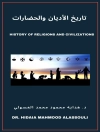The Book of Mormon is a profound religious text that serves as a cornerstone of the Latter-day Saint movement. Written in a unique scriptural style, similar to the King James Bible, it chronicles the spiritual and temporal journeys of ancient American civilizations. The narrative is structured in a historical format, spanning centuries and weaving complex themes of faith, prophecy, and redemption. The book asserts the visitation of Jesus Christ to the Americas, emphasizing the universality of His teachings, while also offering insights into the moral dilemmas faced by its diverse characters, illuminating questions of divine grace and human agency. Joseph Smith, the book’s translator and the founder of the LDS Church, was a 19th-century religious leader driven by visions and prophetic revelations. His own experiences with religious fervor and dissatisfaction propelled him to seek new spiritual truths, leading to the translation of the gold plates he claimed to have discovered. This personal quest, rooted in the religious revivalist climate of early America, shaped Smith’s visionary work, aiming to present a narrative that resonates with both ancient and contemporary audiences, challenging existing theological paradigms. The Book of Mormon invites readers into a transformative spiritual journey, urging them to explore their personal beliefs within a broader religious context. Its rich narrative and doctrinal depth offer profound insights for those seeking not only historical understanding but also spiritual awakening. This book is essential for scholars of religion and seekers of truth alike, promising revelations that transcend geographical and temporal boundaries.
Circa l’autore
Joseph Smith (1805–1844) was an influential religious leader and the founder of Mormonism, a religious and cultural movement. Born in Vermont, USA, Smith published ‘The Book of Mormon’ in 1830, which he claimed to have translated from golden plates that were revealed to him by an angel named Moroni. This sacred text is a cornerstone of the Latter Day Saint movement and is regarded by followers as a complement to the Bible with a focus on the ancient peoples of the Americas. Smith’s translation process and the book’s content have been subjects of much scrutiny and debate. Smith’s narrative style in ‘The Book of Mormon’ is characterized by an emulation of the King James Bible’s language, despite the work’s 19th-century origins. His work presents a complex blend of biblical themes, history, and theology that has gained significant attention from both believers and scholars since its publication. In the broader context of American religious history, Smith is noted for his contribution to the expansion of religious pluralism and the development of new religious expressions. His life and work have been fiercely analyzed in historical and religious scholarship, and his intellectual legacy continues to influence Mormon theology and American culture.




